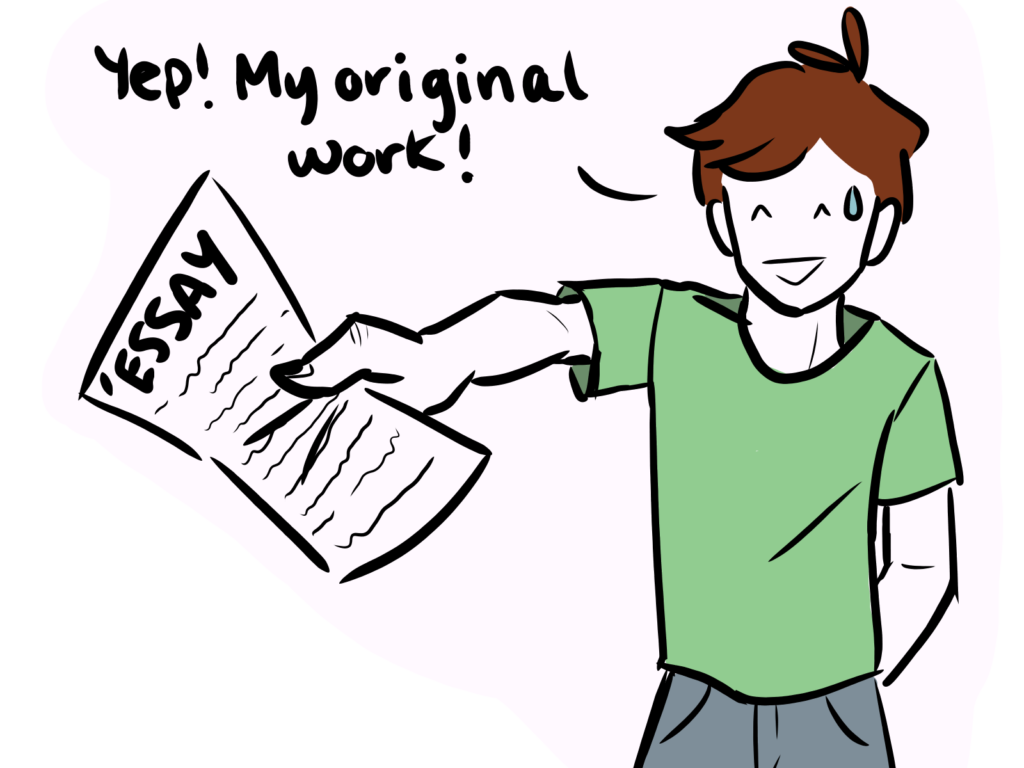
In history and English classes, some students struggle to get words on the page. With recent advances in artificial intelligence, some have turned to AI to complete the task for them.
On Nov. 30 2022, OpenAI launched ChatGPT, a generative chatbot that simulates human conversations. Within a week of its release, it had already reached one million users.
ChatGPT is capable of generating natural, humanistic text that can answer questions and act as a translator or summarization tool.
“It’s unlike anything I’ve ever interfaced with,” said Advanced Standing Modern World History teacher Jennifer Seif. “Unlike Wikipedia, and other ways that you can procure information, the customization and the way that [it] can quickly generate content is out of this world.”
Concerned with its integrity, some are not comfortable using ChatGPT.
“I don’t think I’m the type to do AI prompt generation because it’s not as nice [and] genuine as using your own mind,” said junior Emily Ren. “It doesn’t know who I am or what I would say. It’s just a mimic of human intelligence … you don’t grow as a person if [something] does everything for you.”
“Education is headed for some big systematic shifts”
The consequence of ChatGPT can depend on its usage.
“I can imagine that, if [ChatGPT] got better, it could help [you write] if you’re stuck,” said sophomore Cassie McMillan. “It could save a lot of time.”
However, ChatGPT can easily be misused.
“One student said her brother in college wrote a whole essay [with ChatGPT] to finish up an end-of-semester project,” said math teacher Cheri Dartnell. “[Personally,] I’ve only seen students playing around with [ChatGPT]. For example, [they typed] ‘write me a 200-word essay on the Spanish revolution,’ and I watched it generate [an essay].”
The implications of ChatGPT depend on what people use it for.
“I definitely think people are going to use it to benefit themselves,” Ren said. “Positive [ways] would be innovation. Then there’s also the negative aspect [of] cheating and asking AI to think for you instead of doing your own work.”
Dartnell describes why some students may turn to ChatGPT for homework help.
“[ChatGPT] is so tempting and so easy,” Dartnell said. “Students are stressed, and to use something to make [their work] a little easier is something that is very tempting … There’s going to be a whole generation of students that … at some point [may] not have the skills they need to [be able to] succeed.”
ChatGPT and AI software continue to advance, but limitations still stand to prevent the differences between robots and humans from merging. Because it was only trained on data up to 2021, it may exhibit lapses in the knowledge in the future.
Some also consider AI from a more philosophical standpoint.
“Nothing truly can replace human nature [and] thought,” Ren said. “We perceive the world around us in a way that’s so difficult to emulate … [we] humans struggle to understand our feelings, so how will a robot understand what human nature is?”
McMillan additionally describes the value of writing without AI.
“There’s a certain level of humanity that comes with writing and [using] your own past experiences and what you’ve read,” McMillan said.
People are considering how AI will affect careers and the future.
“Skill sets that are going to be required for the next 50 years of occupations are shifting right now,” Seif said. “Education is headed for some big systemic shifts … We’re in the process of [adapting] how we think about learning and outcomes.”
“Skill sets that are going to be required for the next 50 years of occupations are shifting”
In recent years, the field of natural language processing has come a long way. However, with the increasing novelty of such tools, the future of ChatGPT and its consequences, good or bad, still remains unknown.




